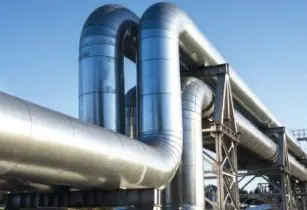As the industry drills deeper and utilises enhanced recovery methods such as thermal and CO2 injection, operators are exposing the products in the pipelines to greater concentrations of harsh chemicals, higher temperatures and higher pressures, highlights the latest issue of Oil Review Africa
In addition, it is estimated that 40% of the world's remaining gas reserves are sour, and CO2 and/or H2S content within these wells averages 10% or more. Therefore, maintaining pipeline integrity and keeping emissions in check has never been more important
GPT Industries’ EVOLUTION is combating these challenges. EVOLUTION is a fully-encapsulated isolation gasket that delivers the impermeable performance needed to prepare any flange for the increasing risks found in today's oil and gas industry.
One of the most common methods of improving the corrosion resistance of steel is coating it with other metals such as aluminium (Al). But the use of Al in marine applications is limited owing to its tendency to react with chloride ions in sea water, leading to corrosion. The addition of other elements, such as magnesium (Mg) and silicon (Si), to form an alloyed coating is a promising way around this problem. But Mg cannot be easily deposited as a coating using the conventional method of dipping the steel into a hot bath of metal salts.
“Our research reveals how a highly corrosion-resistant steel can be produced using a simple change in the surface treatment protocol. This makes it very meaningful for conserving energy and environmental resources,” explained professor Myeong-Hoon Lee of the Korea National Maritime and Ocean University, who guided the study. This study was made available online on 9 September 2021 and was published in Volume 192 of the journal in November 2021.
Read the full article at the latest issue of Oil Review Africa








